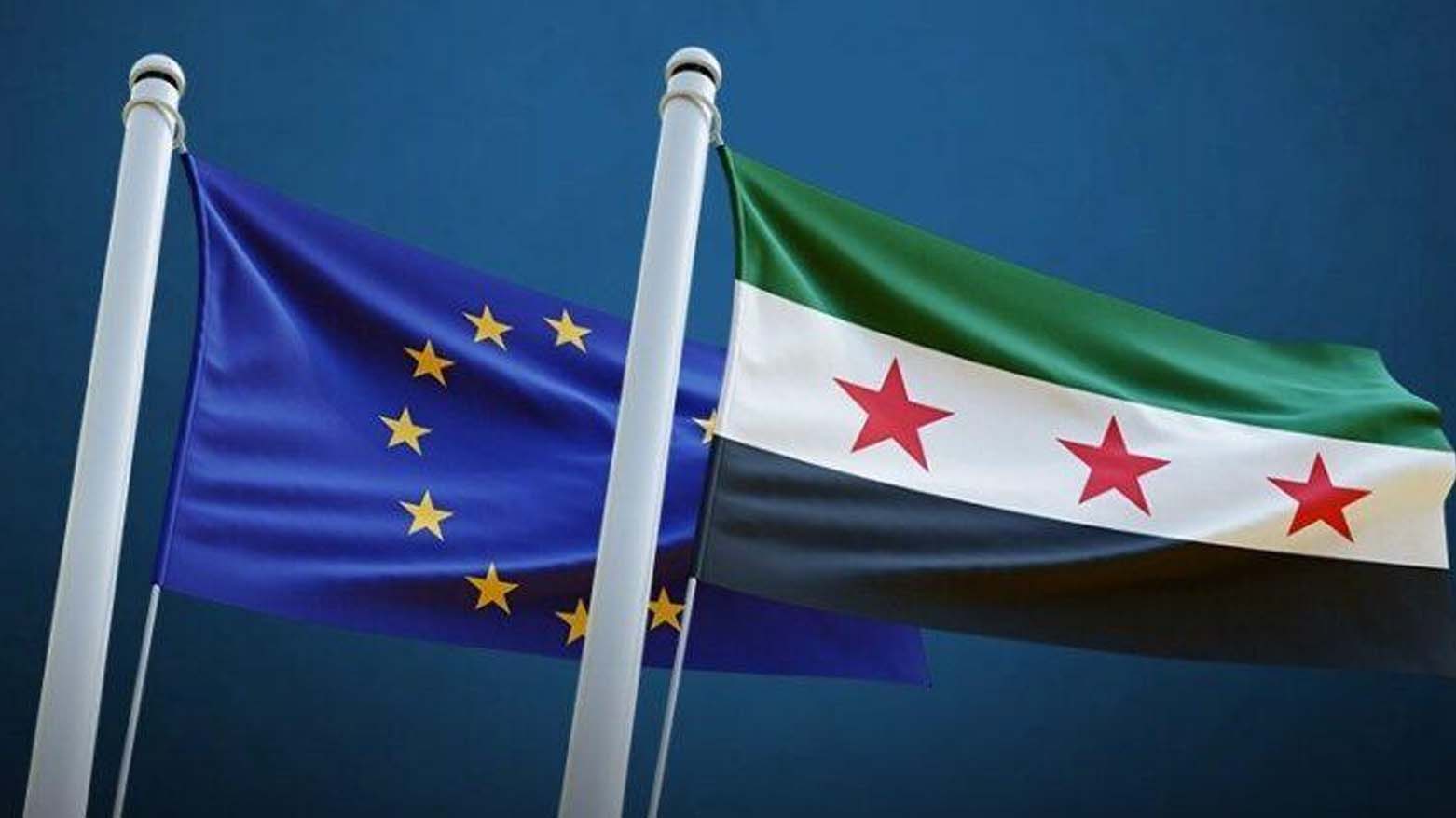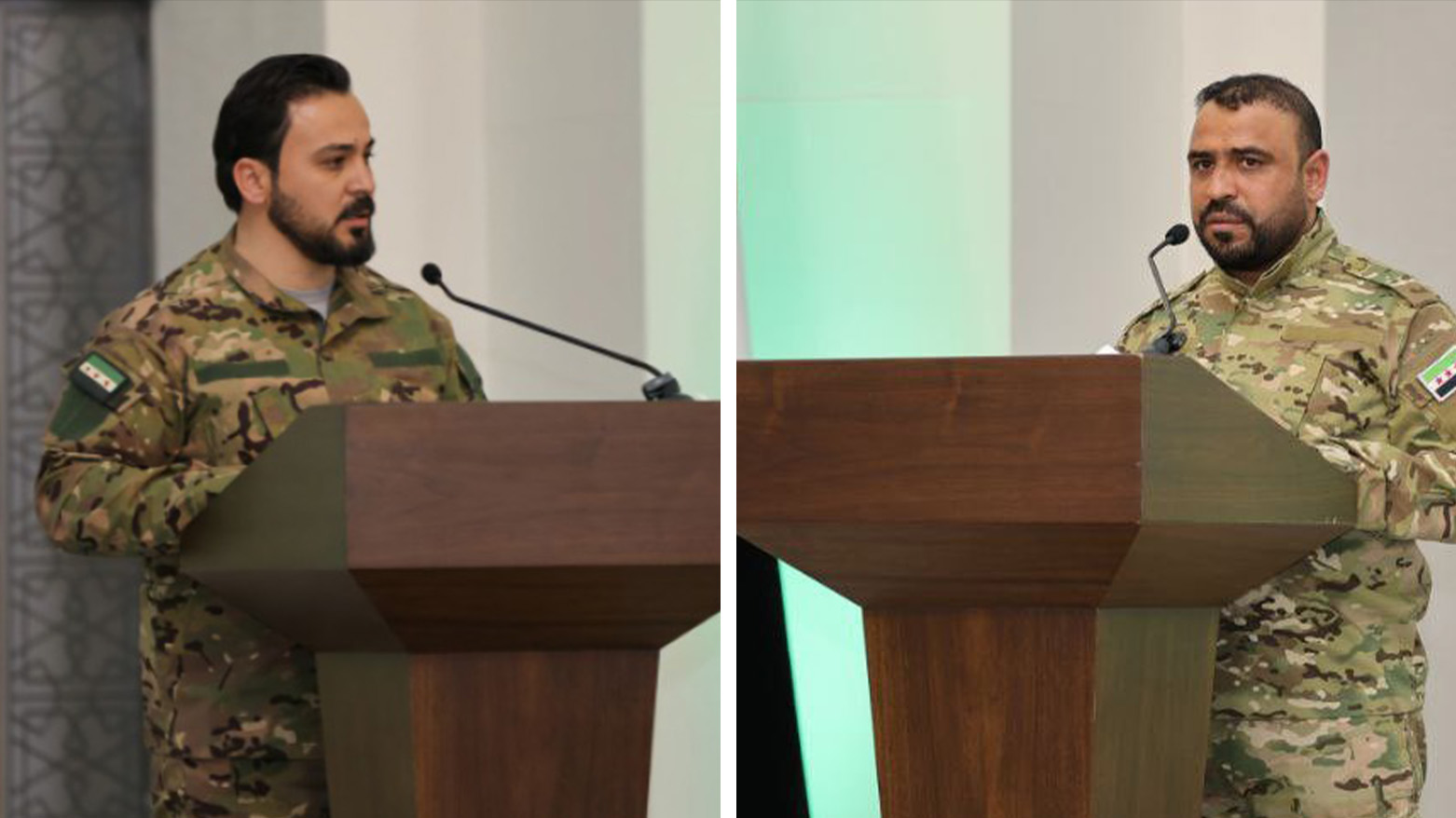EU Imposes Sanctions on Syrian Militia Leaders Abu Amsha and Shaqra Despite Sanctions Relief for Damascus
The new EU sanctions target militia leaders accused of severe human rights violations in Northern Syria (Western Kurdistan) and Alawite-majority regions in western Syria.

By Ahora Qadi
ERBIL (Kurdistan24) – While the European Union has formally adopted legal measures to lift economic sanctions on Syrian state institutions following the collapse of the Assad regime, it has simultaneously imposed new sanctions targeting militia leaders accused of grave human rights violations in Alawite-majority regions in the west of the country.
The decision, which implements the political agreement announced on May 20, 2025, aims to "support efforts to unify the country and build an inclusive, pluralistic, and peaceful Syria," according to a statement published on the European Union's official website.
In this context, the Council removed 24 Syrian entities from the sanctions list, including the Central Bank of Syria and companies operating in vital sectors such as oil production and refining, cotton, and telecommunications, in addition to a number of media outlets and television channels.
The European Union affirmed that this step represents "the right decision at this historic stage," supporting "Syria's recovery and the aspirations of its people toward a comprehensive political transition." It added that it "will remain a key partner at this stage, as it has been for the past fourteen years."
The statement also confirmed that the sanctions list now includes the Sultan Suleiman Shah Brigade, the Hamza Division, and the Sultan Murad Division—armed groups operating under the umbrella of the Syrian National Army (SNA) in northern Syria. These groups have recently joined the newly formed Syrian Ministry of Defense, integrating into the formal military structure under the Syrian Interim Government. Some individuals were sanctioned also, including: Mohammad Hussein al-Jassem—widely known as Abu Amsha, a native of Hama—and Seif Bulad Abu Bakr, a native of Damascus.

Continued Measures Against Former Regime Insiders
Alongside the new designations, the EU also extended existing sanctions against former regime-linked figures, including major economic actors from the Assad and Makhlouf families, as well as officials from Syrian governments between May 2011 and December 2024.
Although sanctions on Syrian governmental institutions have been lifted as part of a revised policy following Bashar al-Assad’s fall in December 2024, European policymakers have reiterated their commitment to holding perpetrators of war crimes and human rights violations accountable, particularly those operating outside the jurisdiction of the new interim authority.
Impunity Persists in SNA-Controlled Areas
Recent findings by Human Rights Watch reveal systemic violations by SNA-affiliated factions, including executions and arbitrary arrests in Alawite-majority coastal areas. These reports reflect a troubling continuity of abuses as the same factions expand their influence under the restructuring of Syria’s military.
Observer says that, despite the formation of an internal inquiry committee, no meaningful disciplinary measures have been taken. Instead, the elevation of these commanders has further consolidated their positions of power.
Promotions Amid Atrocity Allegations
Abu Amsha and Abu Bakr have been promoted to senior leadership positions in Syria's newly reorganized military. Abu Amsha has been appointed brigadier general and commander of the 25th Division, while Seif Bulad Abu Bakr will lead the 76th Division.
These promotions—noted by observers—have proceeded despite internationally documented allegations of abuse, raising concerns that Syria's restructured military may be entrenching a culture of impunity rather than ensuring accountability.
Abu Amsha: A Legacy of Abuse in Afrin
The EU's sanctioning of Abu Amsha comes after years of international documentation implicating his forces in serious abuses in Afrin, Northwest Syria (Western Kurdistan). A 2018 Human Rights Watch report accused his faction of systematically looting Kurdish civilian homes and properties. In April 2020, the Syrian Network for Human Rights reported incidents of arbitrary detention, torture and ethnic killing under his command.
In August 2023, the United States sanctioned Abu Amsha under the Global Magnitsky Act, citing a pattern of forced displacement, abductions, and sexual violence—crimes that disproportionately targeted Kurdish civilians.
Abu Bakr: Orchestrating Violations Through a Shadow Network
According to Human Rights Watch, Syrian armed factions, including the Al-Sham Corps led by Saif Balad (Abu Bakr), have committed serious abuses in the regions of Afrin and parts of the Syrian coast.
HRW documented forced displacement, looting, arbitrary arrests, and property seizures targeting Kurdish civilians. Reports indicate demographic change , with Kurdish families expelled and replaced by Arab settlers.
Additionally, abductions, torture, and enforced disappearances of civilians. HRW also raised concerns over child recruitment and indiscriminate attacks harming civilians.